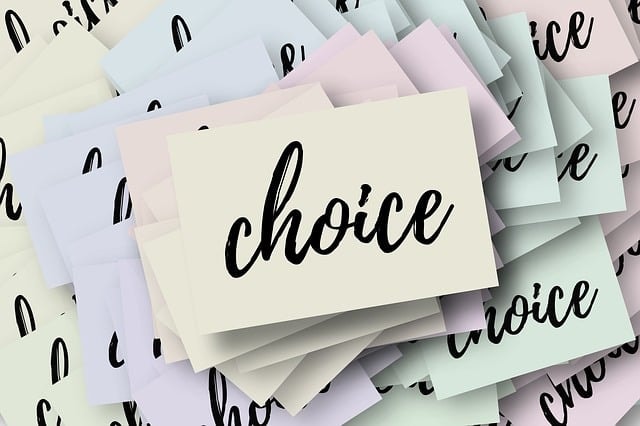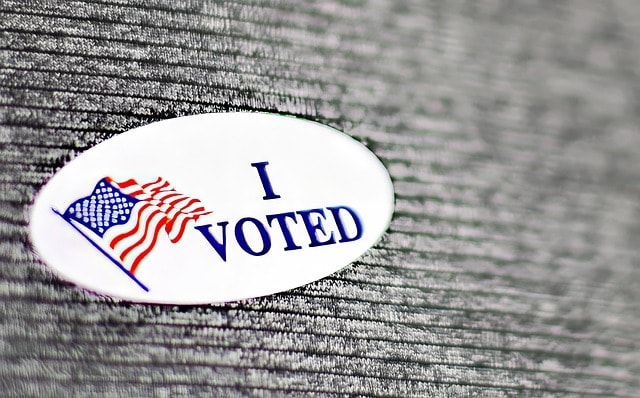Over the past two decades, the world has witnessed a fundamental shift in how people connect, consume information, and engage in the political process. The emergence of social media platforms has redefined every facet of public life—none more so than politics. Why has social media affected political campaigns? The answer lies in a complex relationship between technology, media outlets, public opinion, and the constant evolution of communication.
The Digital Age and the Political Sphere
In the era of the internet and social media, communication moves faster than ever. News media no longer waits for the morning paper or the evening news broadcast. Popular social media platforms like Facebook, X (formerly Twitter), and Instagram bring updates, opinions, and reactions to millions of people instantly. For political actors, this speed is both a challenge and an opportunity.

Why has social media affected political campaigns? Unlike traditional media, online platforms allow politicians and parties to speak directly to voters—cutting out the middleman. Messages go straight from a political candidate’s Facebook page or X account to the screens of millions of social media users. The sheer scale of this direct communication, as the Pew Research Center has documented, has altered the fabric of political messaging, campaign strategy, and even voter behavior.
Bypassing Traditional Media Outlets
For much of modern history, mainstream media and traditional news outlets held a near-monopoly on the news cycle. Editors and journalists controlled the narrative, acting as gatekeepers who decided what counted as news coverage and which voices were heard. Political campaigns relied on press releases, television ads, and coverage in newspapers to shape public perception and rally support.
Today, why has social media affected political campaigns becomes clear when you compare the reach and immediacy of social media to traditional media outlets. News organizations still play a crucial role, but their authority is being challenged. Candidates and parties can bypass editorial filters, speaking directly to supporters through social media posts, livestreams, and targeted political ads. During every election cycle, political campaigns exploit this dynamic to shape election news and influence public opinion.
Social Media’s Impact on Public Opinion
One of the most striking effects of social media’s rise is its power to influence public opinion quickly and dramatically. In the past, swaying public opinion required a coordinated effort across many media outlets. Now, a single viral video, meme, or social media post can shift the political discourse in hours.
Why has social media affected political campaigns? The viral nature of content means that messages—both positive and negative—spread rapidly across the political spectrum. Political campaigns can amplify their preferred narratives, but they’re also more vulnerable to fake news, hate speech, and ai generated content designed to deceive or manipulate. This environment makes it both easier and riskier to sway public opinion, creating a landscape where misinformation can travel just as far as the truth.
The Power of Social Media Influencers
The rise of social media influencers marks a new era in political advertising and campaign strategy. While traditional endorsements once came from party officials, celebrities, or major media figures, today’s influencers often have millions of followers and can drive trends overnight. Political candidates now court popular social media personalities who speak directly to key demographics—especially young voters and niche communities.

The Pew Research Center notes that young people, who often report distrust in mainstream media and traditional news outlets, turn to influencers for news, opinions, and political information. Why has social media affected political campaigns? Because influencers have credibility with their audiences and can shift public perception far more rapidly than traditional endorsements.
Political Participation and Engagement
Perhaps the most positive answer to why has social media affected political campaigns lies in its potential to drive political participation. Social media’s role as a mobilizing force has never been clearer than during high-stakes election cycles or moments of social justice activism. Online platforms make it easier for supporters to organize, share information, and attend rallies or protests.
Political campaigns leverage these features to encourage voter registration, promote their platforms, and respond to issues in real time. Social media presents both opportunities and risks, but its impact on political engagement—particularly among previously disengaged or marginalized groups—cannot be overstated.
The Dark Side: Fake News, Hate Speech, and AI Generated Content
The digital age brings new problems to the political system. Why has social media affected political campaigns? In large part, it’s because the same features that allow for rapid communication and mobilization also create vulnerabilities. Fake news, ai generated content, and coordinated misinformation campaigns can muddy the waters of public discourse and undermine democratic institutions.
Partisan news pages and anonymous accounts spread rumors and conspiracy theories, often targeting one party or particular candidate. Hate speech and harassment thrive in loosely moderated spaces, sometimes driving away less engaged voters or those new to political participation. Authoritarian regimes have learned to weaponize these features, using bots, trolls, and fake accounts to disrupt elections or shape public opinion beyond their borders.
Social Media’s Role in Shaping Political Messaging
Every aspect of modern political campaigns has been shaped by social media usage. From the first viral videos in the 2008 U.S. presidential election to today’s sophisticated digital operations, the role of online platforms in crafting political messaging has grown dramatically.
Why has social media affected political campaigns? Today’s campaigns can micro-target ads to specific voter groups, tailor content to match the interests or fears of different communities, and measure the impact of every post, tweet, or video. Political ads aren’t just about TV spots anymore—they’re about viral challenges, meme campaigns, and real-time engagement.
Media studies scholars note that this shift has democratized communication while also introducing new complexities. Election news isn’t just what’s reported by news outlets or aired on television. It’s created, shared, and debated in the comments section of every social media post, multiplying the number of voices and perspectives in the public sphere.
Mainstream Media Versus Social Media: Complement or Competition for Presidential election?
Traditional media still wields enormous influence. During any major election season, coverage from the largest media organizations sets the national agenda and provides essential fact-checking. But the relationship between traditional media and social media is complicated.

Some political actors use their social media presence to criticize or even delegitimize mainstream news sources, accusing them of bias or censorship. Meanwhile, traditional media outlets increasingly turn to social media for leads, story ideas, and direct engagement with audiences. The boundaries between new media and old have blurred, but the competition for attention and trust remains fierce.
Why has social media affected political campaigns? It’s because it forces traditional media to adapt and compete for audience attention, often leading to faster news cycles, more sensational headlines, and a focus on viral moments rather than deep analysis.
The Global Dimension: European Union and Beyond
The story isn’t limited to the United States or any single nation. The European Union and other democracies have grappled with social media’s impact on political campaigns, particularly regarding data privacy, fake news, and the regulation of political ads.
Election campaigns in Europe have faced their own waves of misinformation, bot activity, and algorithm-driven news consumption. Social media usage patterns differ by country and region, but the overall effect remains consistent: Why has social media affected political campaigns? Because online platforms ignore borders, making it easier for outside actors to intervene, and harder for regulators to keep up with rapid technological change.
Data, Algorithms, and Artificial Intelligence
Modern political campaigns are powered not just by people, but by artificial intelligence and sophisticated algorithms. These systems analyze data from millions of social media users, optimizing every message for maximum impact. Political behavior and public opinion can be measured, predicted, and manipulated with unprecedented precision.
Pew Research Center surveys have shown that many voters remain unaware of how much their online activity shapes the information they see. Why has social media affected political campaigns? Because the hidden power of algorithms can reinforce filter bubbles, amplify partisan news, and steer conversations in ways that serve specific interests.
AI generated content and deepfakes add another layer of complexity, raising concerns about authenticity and trust during election cycles. For political actors, this technology is both a powerful tool and a potential threat to the integrity of democratic institutions.
Myth Busting: Common Misconceptions About Social Media and Political Campaigns
As social media’s role in the political process has grown, several myths and misunderstandings have surfaced—often shaping public perception in misleading ways. Let’s break down three common misconceptions that deserve a closer look.
Myth 1: Social media is the only example of how political opinions change.
It’s easy to believe that shifts in political opinions come solely from what people see on social media platforms. In reality, media consumption is a blend of sources: traditional news, conversations with friends, and even community events all influence voters. Social media certainly speeds up the process and amplifies messages, but it’s not the only example of where opinions form or change. Offline factors and personal experiences remain powerful.
Myth 2: Only young facebook users care about presidential candidates online.
While it’s true that younger generations are highly active on popular social media platforms, data from the past few years shows that facebook users across all age groups now engage with political content. Older voters are increasingly active, using social media to follow presidential candidates, discuss issues, and even participate in online events. The idea that only the young pay attention to politics on social media no longer holds up.
Myth 3: Media consumption online means voters are always better informed.
A common assumption is that access to endless political information online results in a well-informed electorate. In truth, media consumption patterns matter. Algorithms can create echo chambers, serving up content that reinforces existing views while filtering out dissenting voices. As a result, facebook users and others may actually see less diversity in political perspectives—even with more information at their fingertips.
By recognizing these myths, readers can better understand why has social media affected political campaigns—and where the real impacts and limits of online influence actually lie.
Social Media as a Tool for Social Justice and Awareness
Not all of social media’s impact is negative. Many credit its rise with helping to raise awareness about crucial issues, giving a platform to marginalized voices, and driving social justice movements around the world. Political engagement on social media helped propel movements like #MeToo, Black Lives Matter, and climate activism from hashtags to global conversations.
Why has social media affected political campaigns? Because it provides a megaphone for causes that might have struggled for attention in traditional media. Campaigns that can harness this power to rally support often gain momentum quickly, particularly among young voters who might otherwise sit out the process.
The Downsides: Echo Chambers and Declining Trust
Despite its democratizing potential, social media presents risks that threaten the health of the political system. Echo chambers—where users see only opinions they agree with—fuel polarization, making compromise and debate more difficult. Studies suggest that people who rely heavily on social media for political information are more likely to distrust traditional news outlets and more susceptible to fake news.
Why has social media affected political campaigns? Because it shapes not only what people think, but how they think, often hardening divisions across the political spectrum. For election campaigns, the challenge is to reach beyond the echo chamber and build broader coalitions, a task made more difficult in an environment where every issue can become hyper-partisan.
The Role of News Organizations and Fact-Checking
As the media landscape shifts, news organizations have adapted by increasing their presence on social media platforms and investing in real-time fact-checking. The fight against fake news and misinformation is now a central part of election news coverage.
Political candidates who spread misinformation can be called out instantly, but falsehoods often travel further and faster than corrections. Why has social media affected political campaigns? Because in the race for clicks and shares, truth sometimes takes a back seat to sensationalism.
Challenges to Free Speech and Democracy
The question of free speech remains hotly debated. Social media usage has sparked fierce battles over censorship, hate speech, and the limits of political expression. While platforms often defend themselves as neutral carriers of information, their algorithms and moderation policies shape public discourse in profound ways.
Authoritarian regimes exploit these tools to control the narrative and suppress dissent, while democracies struggle to balance the protection of free speech with the need to combat misinformation and protect democratic institutions.
Looking Forward: Both Opportunities and Risks
The future of political campaigns in the digital age will be shaped by how societies address the opportunities and risks of social media. Why has social media affected political campaigns? Because it has changed the rules of the game, forcing candidates, parties, and voters alike to adapt.
Election season after election season, campaigns will continue to innovate, leveraging the reach and speed of online platforms. As artificial intelligence and new technologies evolve, media studies scholars, regulators, and political actors will need to keep pace to safeguard the health of democracy.
Conclusion: The New Reality of Political Campaigns
To sum up, why has social media affected political campaigns comes down to the dramatic ways it has changed communication, organization, and public engagement. Political campaigns today must navigate a world where news media, traditional media, and social media interact in unpredictable ways. Every election cycle brings new lessons—and new challenges.
As the digital age accelerates, the influence of social media on political behavior, public opinion, and the entire political process will only grow. Campaigns that adapt and use these platforms responsibly can rally support, raise awareness, and build movements that change the world. Those that fail to adapt risk being left behind—or worse, losing control of the message altogether.
One thing is certain: Why has social media affected political campaigns is not just a question for political scientists or media studies experts. It’s a reality that every voter, candidate, and citizen must face in a world where every post, like, and share can tip the scales of democracy itself.
